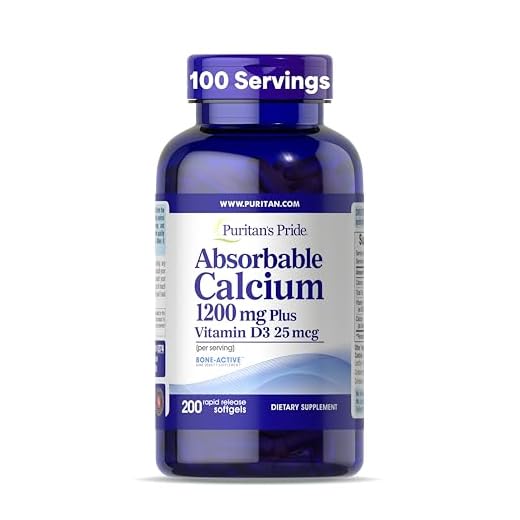







Vitamin D is essential for maintaining strong bone density. It enhances calcium absorption in your intestines, which is vital for bone health, especially as you age. A deficiency in vitamin D can greatly impair calcium absorption, increasing your risk of osteoporosis and fractures. To support ideal bone health, it's recommended that adults consume 600 to 800 IU of vitamin D daily, depending on age. In combination with adequate calcium intake, vitamin D aids in effective bone remodeling, ensuring skeletal strength and integrity. There's more to discover about its benefits and sources, so keep exploring this essential nutrient.
Key Takeaways
- Vitamin D enhances calcium absorption in the intestines, crucial for maintaining strong bone density.
- Adequate vitamin D levels reduce the risk of osteoporosis and bone fractures, especially in older adults.
- It supports bone remodeling by regulating the activity of osteoblasts and osteoclasts, promoting skeletal integrity.
- Vitamin D deficiency can lead to increased fracture risk, emphasizing the importance of maintaining optimal levels.
- Daily intake of 800-1,000 IU of vitamin D significantly lowers fracture risk and supports overall bone health.
Importance of Vitamin D
Importance of Vitamin D
Vitamin D is essential for your bone health, as it directly influences how well your body absorbs calcium from the intestines. Adequate calcium absorption is vital for maintaining strong bone density, especially as you age. A benefit of Vitamin D3 deficiency can greatly reduce calcium absorption, increasing your risk of osteoporosis and fractures. For adults, the recommended daily intake of vitamin D is 600 IU up to age 70 and 800 IU for those over 71. However, research suggests that higher doses ranging from 800 to 1,000 IU might further lower fracture risk. This is particularly important for older individuals, as vitamin D plays a crucial role in bone remodeling and mineralization, helping to maintain bone density.
Additionally, studies show that maintaining adequate levels of vitamin D enhances the effectiveness of osteoporosis medications, improving bone density indices in individuals already diagnosed with the condition. By ensuring you meet daily vitamin D requirements, you can support your overall bone health and reduce the likelihood of serious bone-related issues. Prioritizing dietary sources of vitamin D can be a strategic way to achieve these recommended intakes and promote optimal calcium absorption.
Vitamin D Sources
Finding adequate sources of vitamin D is vital for maintaining ideal bone health. The primary source of vitamin D comes from skin exposure to UV light, which accounts for about 70-80% of your vitamin D levels. When your skin absorbs UVB radiation, it synthesizes vitamin D3, fundamental for bone strength and calcium absorption. Vitamin D's role in health extends beyond just bones, as it also supports immune function and overall well-being.
In addition to sunlight, you can boost your vitamin D levels through dietary sources. Fatty fish like salmon, mackerel, and tuna are excellent foods that contain high amounts of vitamin D3. If you prefer plant-based options, vitamin D2 can be found in some supplements and foods, though it's less effective than D3 in raising serum vitamin D levels.
Fortified foods are another important way to increase your intake. Many products, including milk, orange juice, and cereals, are fortified with vitamin D, making it easier for you to meet your daily needs. By combining sunlight exposure with these dietary sources, you can help guarantee your body has sufficient vitamin D to support healthy bones and overall well-being.
Recommended Daily Intake
Ensuring you meet the recommended daily intake of vitamin D is essential for maintaining ideal bone health. For infants aged 0-12 months, the RDA is 400 IU, while children and adults up to 70 years should aim for 600 IU. If you're over 71, the recommendation increases to 800 IU. Pregnant and nursing individuals also need 600 IU to support both maternal and fetal bone health. Adequate vitamin D levels are vital for promoting calcium absorption, which greatly impacts bone strength and density. The Country Life Vitamin D3 supplement, for instance, provides a high dosage of 5000 IU, making it an excellent option for those who may not get enough sunlight or dietary sources.
The International Osteoporosis Foundation suggests that individuals over 60 should ideally get 800-1,000 IU of vitamin D daily to enhance bone density and reduce fracture risk. Since vitamin D is primarily obtained through sun exposure, dietary sources often contribute only a small percentage of your daily needs. As a result, supplementation may be necessary to meet your requirements, especially if you have limited sun exposure or dietary intake.
Regular monitoring and adjustment of vitamin D intake are essential for at-risk populations to maintain ideal bone health. By ensuring you get enough vitamin D, you're not only supporting your bone density but also reducing the risk of osteoporosis and fractures. Prioritizing your daily intake can greatly impact your overall health and well-being.
Role of Calcium
Calcium plays an essential role in maintaining strong bones and teeth, making it the most abundant mineral in your body. To support ideal bone density, adults up to age 50 should aim for a recommended daily intake of 1,000 mg, while those older than 50 should increase this to 1,200 mg. Insufficient calcium intake can trigger your body to extract calcium from your bones, leading to weakened structures and an increased risk of fractures and osteoporosis.
Ensuring you get enough calcium from dietary sources is vital. This includes dairy products, leafy greens, fish with bones, and fortified foods. Calcium works in tandem with vitamin D, which enhances calcium absorption from your digestive tract into the bloodstream. Together, they play a pivotal role in calcium metabolism, promoting strong bones and preventing long-term health issues.
A consistent deficiency in calcium can result in serious conditions like osteoporosis, characterized by brittle bones and a heightened susceptibility to fractures. By focusing on your calcium intake along with vitamin D, you can greatly bolster your bone health and reduce the risk of debilitating injuries as you age.
Impact on Bone Health
Vitamin D plays an essential role in maintaining bone health, particularly through its impact on calcium absorption. It's imperative for you to understand that adequate vitamin D levels enhance calcium absorption in your intestines, which is essential for ideal bone mineral density. This is especially important in preventing osteoporosis and reducing the risk of fractures, particularly in older adults.
Research indicates that a daily intake of 800-1,000 IU of vitamin D can considerably lower fracture risk by improving bone density. If you're experiencing vitamin D deficiency, you may notice decreased bone mineral density (BMD), increasing your risk of fractures, especially if you're a postmenopausal woman.
Moreover, adequate vitamin D supports bone remodeling and mineralization, helping to maintain overall skeletal health. Combined supplementation of calcium and vitamin D has shown positive effects on bone mineral density, highlighting their synergistic role in promoting bone health. By ensuring proper dietary intake of vitamin D, you can actively support your bone density and lower your risk of osteoporosis and fractures, reinforcing the importance of maintaining sufficient vitamin D levels in your daily routine.
Risks of Deficiency
A lack of vitamin D can greatly jeopardize your bone health, leading to serious risks. When you don't get enough vitamin D, your body struggles to absorb calcium effectively. This deficiency can increase your risk of developing osteoporosis, a condition that weakens bones and makes them more susceptible to fractures. Studies indicate that individuals with low vitamin D serum levels experience a 25% higher risk of fractures compared to those with adequate levels.
In children, vitamin D deficiency can lead to rickets, resulting in weak and soft bones. In adults, it may cause osteomalacia, characterized by bone pain and muscle weakness. Long-term insufficiency can exacerbate bone loss, particularly in older adults, where the risk of hip and non-vertebral fractures notably rises. To maintain ideal bone health, it's essential to keep your vitamin D serum levels above 50 nmol/L, as deficiency is defined as levels below 25 nmol/L. By ensuring adequate vitamin D intake, you can protect yourself from the severe consequences of deficiency and support your overall skeletal health.
Conclusion
So, if you're aiming for bone density that rivals a superhero's, don't forget your vitamin D! It's not just a sunny day's best friend; it's essential for keeping your bones strong and healthy. Embrace those fortified foods and bask in the sunlight—unless you're a vampire, then maybe just stick to supplements. After all, no one wants to be that person at the doctor's office, saying, "What's this about brittle bones?" when a little sunshine could've saved the day!





